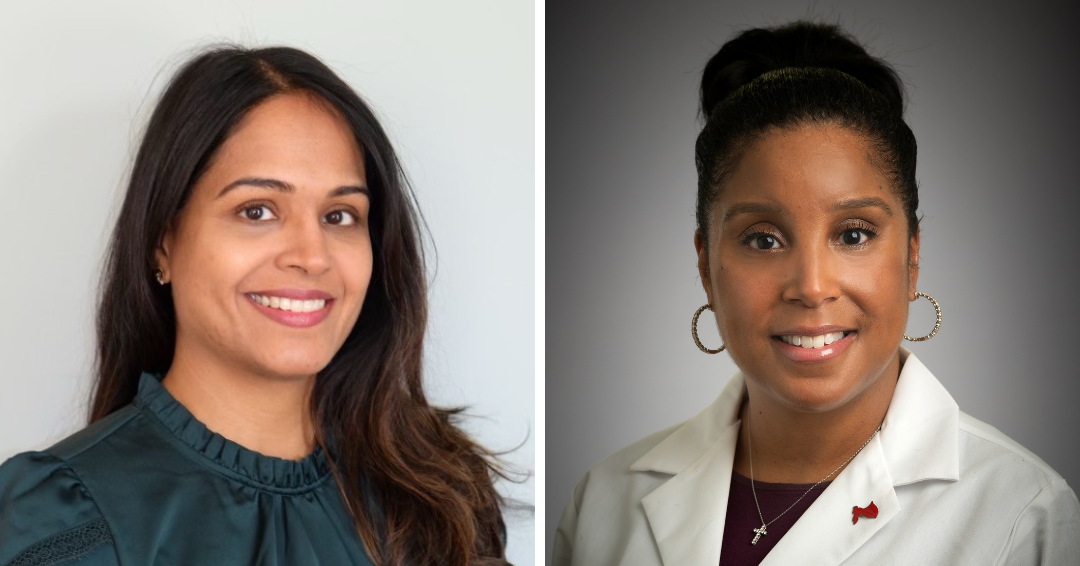While our team is focused on cervical health and cervical cancer prevention all year long, January is a time to raise awareness and help people take steps to reduce the risk of this preventable cancer. We at Resilience encourage all of you to educate yourselves and our community members about the importance of cervical health screenings and speak with our doctors about measures to reduce risk!
Dr. Rajul Kothari (pictured on the left), located at River Forest Medical Campus, is double board-certified in Obstetrics and Gynecology as well as Gynecological Oncology. She specializes in cancers that affect the female reproductive organs, as well as complex benign conditions such as endometriosis.
Weiss gynecologist, Dr. Nichole Butler (pictured on the right), has been a strong advocate for advancing the gynecological care of women during their reproductive years and beyond since the early days of her practice. She is an aggressive minimally invasive surgeon with strong diagnostic skill who excels in communicating with a diverse patient population. Dr. Butler answers some questions about cervical health, below.
Q: When should a person get their first pap smear?
A: A pap smear is not necessary until age 21. Years ago women started earlier; now we start doing the pap smear at 21.
Q: What is a pap smear screening for?
A: [It is a] screening test for cervical cancer. As you may know, cancer is abnormal cells, so when we are taking a sample of the cells, we’re looking at them to make sure they are normal. That is what a pap smear is screening for.
Q: What is the relationship between HPV and cervical health?
A: HPV is Human Papillomavirus. It is a virus very similar [to] a cold virus, but it is passed sexually. And what we know now is that HPV is the virus that causes cervical cancer, so we screen for HPV to identify women that are at increased risk for cervical cancer.
Q: Who should get the HPV vaccine?
A: I am a big fan of the HPV vaccine. As a gynecologist and as someone that sees cervical cancer and the damage that it does, I recommend that everyone get the HPV vaccine. I think that pediatricians should be giving it so that we start at a younger age before people are sexually active, as we know this virus is sexually transmitted.
Q: Who should get an HPV test?
A: The HPV test is a test that we do at the same time as the pap smear. It is recommended by The American College [of Obstetricians and Gynecologists] that everyone get the HPV test after age 30. Before age 30 you can get it but generally, we do what’s called just a pap smear and if its abnormal we run the HPV screening test at that time.

